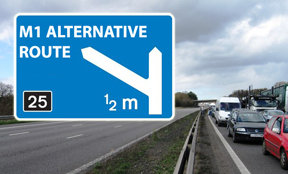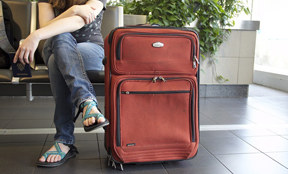
With the Covid Pirola variant causing serious symptoms for some people, drivers are asking if they must tell the DVLA about the infection – as is the case with many other diseases and ailments.
Here motoring journalist and expert Pete Barden looks at if you need to report the Pirola infection to the agency that controls driving licences and if the severity of infection plays a part in the requirement to inform the DVLA of a Covid-related illness.
 Do drivers need to report if they are suffering from Covid-19 -
or have previously done so?
Do drivers need to report if they are suffering from Covid-19 -
or have previously done so?
Must I tell the DVLA about health issues?
Yes, but only some. Not all ailments, injuries, diseases or conditions - such as visual impairment - must be reported. You should always check the list if think your condition is impacting your ability to drive.
Do I need to report Covid-19 Pirola to the DVLA?
No. There is no specific requirement to divulge a coronavirus infection. However, if the infection is serious, other associated health conditions could require you to tell the agency.
For example, severe infections of the virus have been known to cause blood clots, which may affect your ability to drive - so must be divulged. See the official guidance on driving and blood clots here.
Similarly, research in the UK published in the Lancet, found people who became sick with the virus had a significant chance of developing psychiatric issues such as depression and anxiety – both of which may require you to notify the DVLA. If this affects you, find more information here.
Subscribe for free motoring and travel news here - support independent journalism
How will I know if I should contact the DVLA about Covid-related health issues?
If concerned about the effects of your coronavirus infection and your ability to drive, you should contact a health professional and take advice from the agency. Failure to do so, could result in a fine of up to £1,000.
What happens if I report a coronavirus-related medical issue?
Whether the medical issue is related to the virus or not, the DVLA will make a decision regarding your fitness to drive. It will then make a decision of how this affects the driver’s licence. These could include: the requirement to get a new driving licence, varying its length of validity, ordering the person to give up driving – either permanently or on a temporary basis – or adapt their vehicle to fit specific medical needs.
Should I mention other ailments not related to the virus?
The Gov.UK has a full list of ailment and conditions, with advice on whether or not they must be reported for further investigation. The full list of conditions and advice can be found here.
Most read motoring content
Take a look at more of our top motoring-related content here...
-
Can I use an electric scooter to get around in lockdown?
-
How to spot a fake undercover police car
-
Will I get a 7-month extension to my driving licence photocard?
-
Do I need to pay the Dartford Crossing charge on Sundays?
-
Will I get a 6-month extension to my MOT
-
Will I get a speeding ticket after being flashed
-
Do I need an international driving permit for France and Spain
-
Secret parking offences you're committing revealed
-
Alternative routes for beating jams on the M25
-
Alternative routes for the M1 motorway
-
Alternative routes for the M6 motorway
-
How old are my tyres - find out instantly here
-
What are the black dots on my windscreen for?
-
Are my sunglasses legal for driving?
Author: Pete Barden:
Twitter: @pete_barden
Pete Barden is a qualified journalist who has written and produced for publications including The Sun (thesun.co.uk), New Statesman Media Group, Whatcar? (Whatcar.com) Stuff Magazine (Stuff.tv), Fastcar Magazine (Fastcar.co.uk), Maxim Magazine and UK broadcast stations within the Heart network (Formerly GCAP). Pete specialises in motoring and travel content, along with news and production roles. You can find out more about Pete Barden on LinkedIn.











